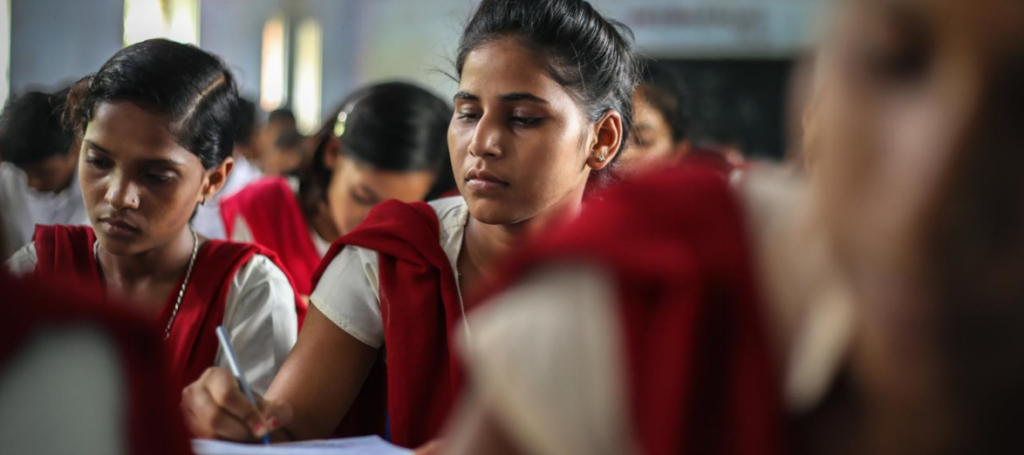On 9th March 2020, the 64th session of the Commission on the Status of Women convened a special procedural meeting and the Member States adopted a special Political Declaration reaffirming the Beijing Platform for Action. This 2020 CSW marked an important part of history as 25 years have passed since the Beijing Declaration.
For this occasion, the Global Menstrual Collective has gathered its members to issue a statement to call for greater attention and improved investment for menstrual health to achieve gender equality.

We, as members of the Global Menstrual Health and Hygiene Collective, are committed to contributing towards gender equality, empowerment of women and realising the vision of the Beijing Declaration and Platform for Action. Millions of women, girls and transgender people who menstruate are negatively affected by inequitable social norms, discriminatory practices and inadequate menstrual health services, which impact their sexual reproductive health and rights and psycho-social well-being. Menstruation is a normal biological process experienced by half the world’s population for a significant part of their lives. However, widespread stigma and taboos associated with menstruation, rooted in gender inequality, mean that it remains a source of fear, embarrassment and shame. Gender equality will not be achieved unless menstrual health is addressed by all relevant sectors through appropriate policies, programming and funding.
We call on Member States, the United Nations, private sector and civil society organisations to address the barriers experienced by people who menstruate that prevent them from realising their human rights. Comprehensive menstrual health is fundamental to the Beijing Platform for Action’s objectives on providing reproductive health information and services, removing obstacles for women and girls in decision making, tackling discrimination women face in the workplace and their communities, providing girls with equal education opportunities and tackling early marriage and unintended pregnancy.
The 2019 Review of the Beijing Declaration highlights the importance of steps to address menstrual stigma and the provision of adequate sanitation in schools for menstrual hygiene. However, as the 2019 Review states, ‘financing for gender equality and the empowerment of women and girls has been manifestly insufficient’. Despite increased global attention to menstrual health, investment has not been commensurate with its relevance to achieving the 2030 Agenda. Increased investment in menstrual health is investment in women and girls’ health, and will contribute to achieving several Sustainable Development Goals, including Goal 3 on health; Goal 4 on education; Goal 5 on gender equality, Goal 6 on water and sanitation, Goal 10 on reduced inequalities and Goal 17 on partnerships.
The Global Menstrual Health and Hygiene Collective – with a diverse membership consisting of NGOs, UN agencies, academic institutions, private sector organisations and networks – was established to drive and guide improved investment in menstrual health through evidence-based advocacy.
We call on states and all who support the Beijing Declaration through the Commission on the Status of Women to join us in our collective efforts to resource and deliver comprehensive and inclusive menstrual health. All people who menstruate should receive information about the menstrual cycle, its link to reproductive health and rights, and how to take care of their bodies; be able to make informed choices about menstrual products and practices and be socially supported to participate freely in daily activities free from menstrual-related discrimination; have access to health services for menstrual disorders; and have a safe physical environment with water and sanitation services that support menstrual health and waste management. These require action by states and partners in three key areas.
- To significantly increase financial investment and resources to scale up menstrual health. States and their partners should adopt multi-sectoral approaches which ensure menstrual health is addressed in public health, education, sexual and reproductive health and rights, gender, WASH, and workplace-related policies.
- To make a stronger, actionable commitment towards tackling discriminatory gender norms, attitudes, practices and stigma around menstruation, at all levels from household and community to institutions, using a human rights-based approach that ensures needs voiced by all people who menstruate, are heard and drive solutions. Investment must target those who are most marginalised, including people with disabilities, people in humanitarian settings and those with non-binary gender identities, who may experience multiple dimensions of exclusion and discrimination and are least likely to have their menstrual needs met.
- To generate data on menstrual health and track progress by incorporating menstrual health-related indicators into national monitoring systems. More research is needed to understand which interventions are successful in breaking stigmas and restrictions and how to use the right metrics to measure their success; and to identify transformative approaches to tackle other structural barriers
This statement is endorsed by the following organisations*
WaterAid | Simavi | WASH United | Canada World Youth | Days for Girls | Global Interfaith WASH Alliance India | IPPF ESEAOR | IPPF | Choice for Youth and Sexuality | Dance4Life | PATH | Save the Children | Marie Stopes International | WSSCC | African Coalition for Menstrual Health Management | PSI | The Case for Her | Menstrual Cup Coalition | ZanaAfrica | Radha Paudel Foundation | Global South Coalition for Dignified Menstruation | Lunette | Bloody Good Period | Menstrual Health Hub | Knit Together Initiative | Women’s Global Health Innovations | Health Aid for All Initiative | Visible Impact | Live Health Initiatives | Nepal Fertility Care Centre | The Grace Cup | AFRIpads | Safepad | Hope Centre for Children, Girls and Women in Tanzania |
*Endorsing organisations include but are not limited to the members of the Global Menstrual Collective.
- The Case for Her Teamhttps://thecaseforher.com/blog/author/tcfh-team/
- The Case for Her Teamhttps://thecaseforher.com/blog/author/tcfh-team/
- The Case for Her Teamhttps://thecaseforher.com/blog/author/tcfh-team/
- The Case for Her Teamhttps://thecaseforher.com/blog/author/tcfh-team/


